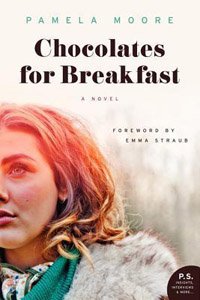Don’t Let’s Go to the Dogs Tonight: An African Childhood by Alexandra Fuller (2001) | Book Review
 Don't Lets Go to the Dogs Tonight: An African Childhood by Alexandra Fuller
Don't Lets Go to the Dogs Tonight: An African Childhood by Alexandra Fuller Genres: Adventure, Memoir, Non-Fiction
Original Publication Date: 2001
Source: I purchased this book
Goodreads
Find the Author: Website, Goodreads, Amazon

In Don’t Let’s Go to the Dogs Tonight: An African Childhood, Alexandra Fuller tells her story. Fuller grew up on several farms in southern and central Africa. Her father joined up on the side of the white government in the Rhodesian civil war and was often away fighting against the powerful black guerilla factions. Though Fuller’s mother loved her children, she was no hand-holder and had little tolerance for neediness. She taught her daughters to be resilient and self-sufficient. She instilled in Alexandra a love of reading and of storytelling that proved to be her salvation.
Table of Contents
Don’t Let’s Go to the Dogs Tonight: An African Childhood by Alexandra Fuller is the author’s account of growing up in the countries of Rhodesia (now Zimbabwe), Malawi, and Zambia.
Fuller’s family was originally from England, where Alexandra was born.
Her family moved to Africa during a time of great unrest.
Rhodesia was still white-ruled but at the tail-end of British colonialism. The parents like to live in isolated areas, far away from towns and cities.
Don’t Let’s Go To The Dogs Tonight Is About A White Family Living in Africa
However, Fuller’s parents were not rich, titled landowners, but rather poor farmers barely eking out an existence.
Of course, they still had black servants, lots of dogs, and an attitude that the African countries should be run by whites.
Even if Rhodesia didn’t have an official “apartheid” which in Afrikaans means “apartness” – everything is separate. The different races go to different schools, stores, and hospitals.
Alexandra and her sister Vanessa are shaped by the racist attitudes of their parents and the white society around them. After all, why would she question it? That is all she knows. She is only a child.
It is obvious, though, that she sees things differently now:
Between 1889 and 1893, British settlers moving up from South Africa, under the steely, acquiring eye of Cecil John Rhodes, has been . . .what word can I use? I suppose it depends on who you are. I could say: Taking? Stealing? Settling? Homesteading? Appropriating?
Even though she grew up in the 1970s and 1980s, there is no television in her house, the only radio broadcasts seem to be from the BBC, and most of the people she meets daily are her family and the black servants.
According to Don’t Let’s Go to the Dogs Tonight, the blacks fighting for independence are considered “terrorists”.
So life is tough for everyone:
Vanessa and I, like all the kids over the age of five in our valley, have to learn how to load an FN rifle magazine, strip and clean all the guns in the house, and ultimately, shoot-to-kill.
Fuller also loves Africa. The book is filled with rich imagery and poetic language:
What I can’t know about Africa as a child (because I have no memory of any other place) is her smell; hot sweet, smoky, salty, sharp-soft. It is like black tea, cut tobacco, fresh fire, old sweat, young grass.
The Fuller Family Suffered Many Tragedies
The book is not heavily political, however, as it mostly concerns what happened within the Fuller family, and that story is almost unbearably tragic at times.
Out of five children born to the family, only two survive. Alexandra blames herself for the death of her sister, and I strongly suspect that she still is bearing that terrible burden today:
No one ever came right out and said in the broad light of day that I was responsible for Olivia’s death and that Olivia’s death made Mum go from being a fun drunk to a crazy, sad drunk and so I am also responsible for Mum’s madness. No one ever came right out and said it in words and with pointing fingers. They didn’t have to.
Here is Alexandra Fuller talking about this book and the sequel:
Final Analysis
This story is fascinating, mostly taking place during the time of the Rhodesia Bush War, when blacks decided that they wanted their land back and to rule, which is what eventually happened (Rhodesia is now called Zimbabwe).
Eventually, their land was taken away from the family, and eventually, the Fullers moved to Malawi, and then to Zambia.
Fuller also makes no apologies for or commentary on the racist attitudes of the white Rhodesians, including those of her own family. Is that a weakness of the book? Perhaps, or else she just feels that it is unnecessary to do so.
She prefers to write about it as she saw it at the time when she was a child. After all, it does not show these people in a very flattering light. She doesn’t spare herself, either.
However, I still highly recommend this book. It is very funny but also achingly sad at times. You will be a richer person for having read it.
I also like this review from Not Even Past.
You can also read my review of Autobiography of a Face by Lucy Grealy.
Thank you for reading The Literary Lioness!





20 Comments
Lauren
I really think this is a book I will be looking for. I love non fiction.
Booksnob
I am a new follower via the hip book hop. Come and check out my eclectic blog and contests. http://www.booksnob-booksnob.blogspot.com
The Literary Lioness
@Lauren — I love non fiction, too. Especially memoirs and biographies.
The Literary Lioness
@Booksnob — Thanks for following!
Stephany
Hey! Thanks for stopping by my blog!
Stephany @ http://stephanysbookreviews.blogspot.com
bibliophiliac
Hello, LL, I'm stopping by on the book blog hop. This looks like a great blog, so I just became your newest follower. I look forward to reading more of your posts.
The Literary Lioness
@Stephany — You are welcome!
The Literary Lioness
@bibliophiliac — Thank you so much for visiting and following!
Susan
I agree – it's hard to compare apples with oranges when trying to rate books. I still use an ABCDF system, though, since I think it tells readers right off what I think of a book. I try to explain my reservations and such in the review. Works for me!
Love your blog, by the way. I found you through the Hop.
Charlie
Loving the book blogger community hop! Charlie over at http://www.bitsyblingbooks.com
The Literary Lioness
@Susan — Ratings don't work for me, but they may well work for other bloggers!
The Literary Lioness
@Charlie — Great to meet new books bloggers!
Library Cat
Very good point about apple and oranges. Visiting from the HOP.
I hope you will visit on or both of my blogs: LibrarysCat or Holocaust Resources for Children!!
Have a great weekend!
The Literary Lioness
@Library Cat — It's so hard to compare totally different books. It's like at the Academy Awards — is a drama always better than a comedy?
KIKA
you have a LOVELY blog! 😀 ye— I feel the same way about rating systems. Hopping on through and am now a follower 😀 Happy reading
TheBookBluff
The Literary Lioness
@KIKA — Thank you so much!
Kate
Wow, it's incredible to think that someone growing up that late in history could be sheltered to accept those types of views. Sounds like a truly fascinating book!
The Literary Lioness
@Kate — It really is!
Wrighton
Good Morning, I am a new follower from Book Blogs. I too am trying to find a template that I can live with, however I am not happy yet so will be continuing. If you get a chance please stop by and check me out at http://www.wrighton-time.blogspot.com
Have a wonderful day, Oh and I found that everytime I change templates I kick out my google analytics. Grrrr. LOL
The Literary Lioness
@Wrighton — Thanks for following. Don't worry, you'll find a template you will love eventually. LOL at your Google Analytics comment.